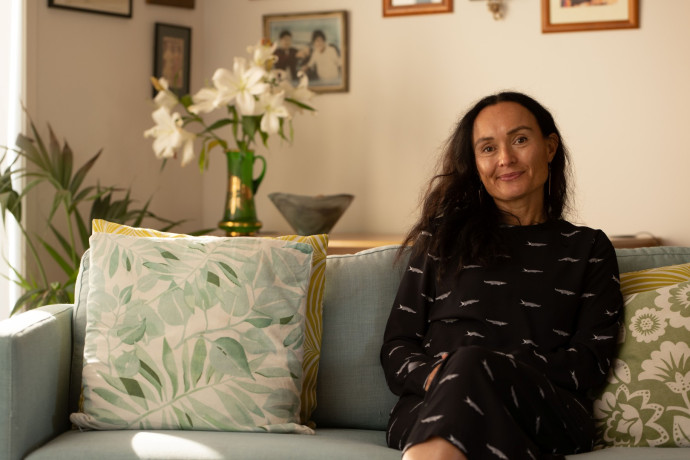2025 Te Rangi Hiroa Medal: Making people count with demography and data sovereignty

Professor Tahu Kukutai FRSNZ (Ngāti Tīpā, Ngāti Mahanga, Ngāti Kinohaku, Ngāti Ngawaero, Te Aupōuri), of Te Whare Wānanga o Waikato – the University of Waikato, has been awarded Te Rangi Hiroa Medal for world-leading research on Indigenous data sovereignty and Indigenous demography, and for distinguished contributions to these disciplines globally.
Combining sociological theory and demographic methods, Tahu has been able to use large datasets to explore social and economic issues, including wellbeing for Māori communities.
She co-edited the first scholarly work to develop the concept of Indigenous data sovereignty. This has been globally influential, informing practical applications to avoid harmful use of data and enabling communities to contribute to and benefit from their own data.
Tahu has published widely on Māori demography and ethnic identity. She is known internationally for her work on census methodologies and state practices of ethnic and racial classification. She is committed to sharing her expertise to raise awareness of the importance of data and demography.
Tahu says that her research is about “making people count”.
“Demography is much more than data points on a page and lines on a graph, it’s about people. And the data systems that underpin that are fundamentally about people.”
She says that her two areas of research – Māori demography and population research, and Māori data sovereignty – fit together well.
“One of them is about understanding the drivers and the impacts of Māori population change for hapu, for iwi, and for Māori as a whole.”
“The other is about understanding how can we restore mana Māori over Māori data? What are the ways that we can do that? What are the tools that we can build? What are the processes that we need? What is the future workforce we want to grow in this space?”
Tahu is excited about the innovation that’s happening in the population and data space. Looking back 15 years there were just a handful of Māori working in the area and now it is burgeoning.
“There's an amazing community with lots of initiatives with hapu and iwi. They are collaborating and they’re moving forward.”
One example of working in this space is project called ‘Counting our Tūpuna’ that received a grant from the Marsden Fund. The project was undertaken with her hapu Ngāti Tiipa, from where the Waikato River meets the Tasman Sea. It sought to reconstitute their tūpuna (ancestor) population from about 1750 to 1900.
“We went on a massive data collection and repatriation exercise as a whānau. We found information on our whakapapa that was relevant to us.”
From there they were able to build their own whakapapa database in a way that was values-led and beneficial to them collectively as a hapu.
“It was demography, with the people, by the people, for the people.”
This sort of research has valuable lessons for New Zealand as we move away from the traditional census towards a new model of census which involves the reuse of administrative data, Tahu says.
The purpose of the census is two-fold: to count the population and understand how it is changing, so we can anticipate what the population’s needs will be and plan for the future.
“Aotearoa has a unique demography with a high proportion of people born overseas and a high proportion of the population that is Indigenous. We've had two different demographic transitions. We've got very different age structures. That means very different needs in terms of future planning.”
“How do we go about creating ethical, transparent, trustworthy, and beneficial data systems for the wider population?”
“There is much that can be learned from Māori and Indigenous data sovereignty approaches,” Tahu says.
“There are so many unethical data practices going on at the moment, but I think what’s really unique and distinctive about a Māori values-led tikanga-led approach is it puts people at the centre.”
“It asks questions like, ‘what does it take to be a good kaitiaki of our digital taonga?’”
Data is a taonga. And if you have a taonga, it's really important that you be the best kaitiaki that you can be.”
“I think we understand that pretty well in te ao Māori. I think the challenge is actually for the nation. How can Aotearoa as a whole be a good kaitiaki of its digital information moving forward as well?”
Tahu says that winning this particular Medal means a lot to her.
“Te Rangi Hiroa was an incredible scholar. He was the first Māori Fellow of the New Zealand Institute, which later became the Royal Society. His work on Māori health is an important resource for Māori demography, and I’ve referred to it many times in my own research. In 2018, I was fortunate to be able to attend Te Ra o Te Rangi Hiroa at Urenui marae. So receiving this award, in his name, is a huge honour.”
Tahu wishes to thank and acknowledge her whānau, “especially my dad Karu Kukutai and the whānau at Te Tira Rangahau o Ngāti Tiipa, my colleages at Ngā Pae o Te Māramatanga and Te Ngira Insitute for Population Research, and my tuakana Prof Tracey McIntosh who nominated me for the award”.
Te Rangi Hiroa Medal:
For outstanding work in social history, cultural diversity, socioeconomics or medical anthropology.
Citation:
To Tahu Hera Kukutai for world-leading research on Indigenous data sovereignty and Indigenous demography and distinguished contributions to building and maintaining these disciplinary fields globally.
